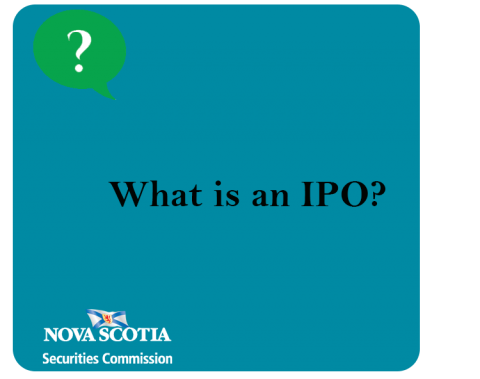Submitted by nsscadmin on

An Initial Public Offering (IPO) is the process involved to take a business public to sell securities such as shares.
The process can be a very long one, sometimes taking years, and begins with the preparing and filing of a preliminary prospectus with a securities regulator. We previously discussed what is in a prospectus in a previous post. A prospectus includes numerous disclosure around a company’s business, finances and structure, as well as information pertaining to the plan to sell securities and the money that will be raised. To learn more about a prospectus and more specifically what it must contain we invite you to review our previous post.
Once the prospectus is filed with the securities regulator it will be reviewed and possibly sent back to the company with requests for additions or changes. Once these changes are made and the securities regulator is satisfied that all disclosure requirements have been met, a receipt will be issued which will allow the business to sell securities.
Once a receipt is issued securities can be sold, but it doesn’t happen immediately. The next step for most companies preparing an IPO is an IPO Roadshow. This is a marketing drive used to sell the investment’s merit to potential investors. The investment options available to investor are enormous, so an IPO roadshow is basically a sales pitch from the company to potential investors trying to convince them that their investment is worth their time and money.
One other important factor that must be determined before the IPO process is completed and shares are available for sale is the share price. Pricing is dependent on a number of factors including how much capital the business hopes to raise, what will the demand be at certain prices, and what price are shares in comparative companies selling for.
Once the disclosure requirements have been met, price has been set and the marketing blitz completed the company sets their IPO date and begins selling shares when the day arrives. Investing is a tricky business which comes with risk, so getting in on an IPO doesn’t guarantee future profit. In fact, price swings following an IPO are quite common both up and down. When you’re thinking about getting in on a new IPO makes sure it fits into your long-term investing plan.
